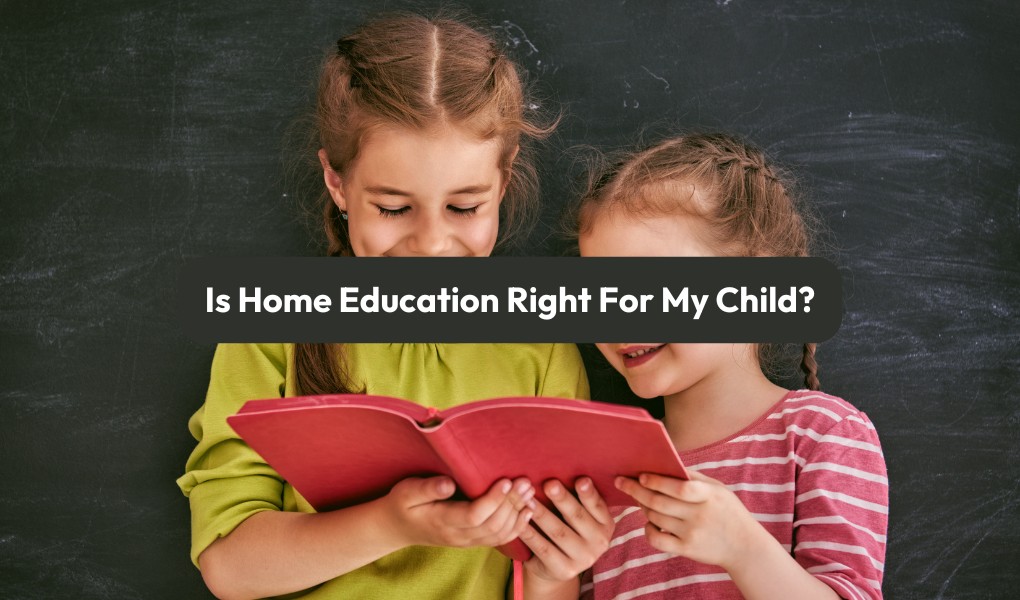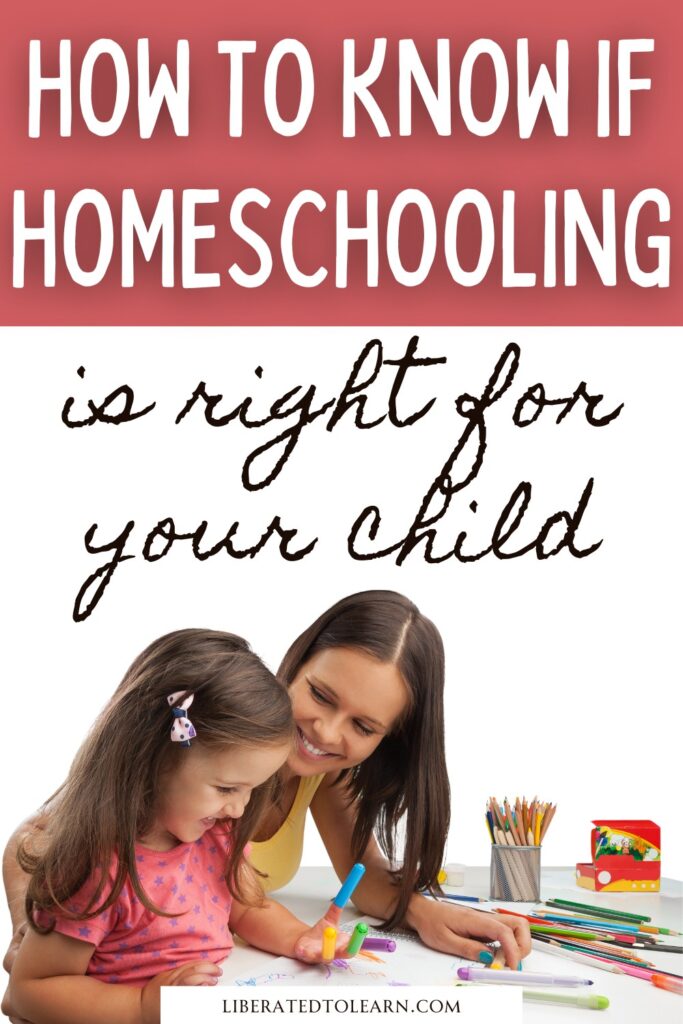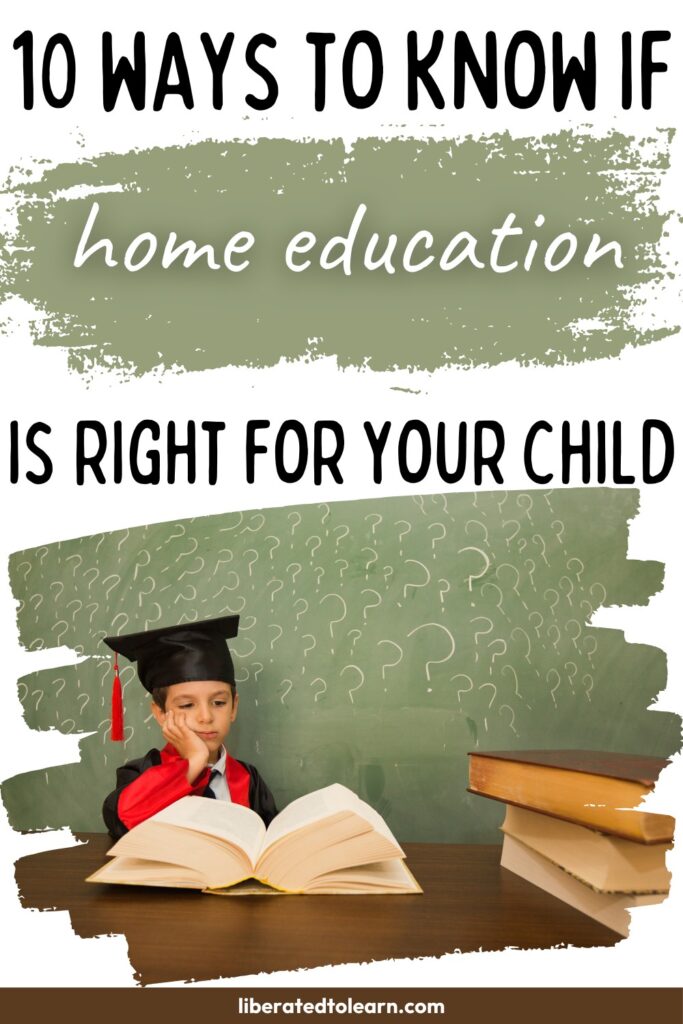Home education is a choice for everyone, but how do you know if it’s right for your child?

Contents
Home education is a choice for everyone, but how do you know if it’s right for your child?
Whilst you’ve probably been thinking about home education a lot, have done a bit of research and know that it aligns with your own philosophies, you still might be wondering if it’s the right decision for your child. Sure, asking them might give you an answer, but knowing for sure if you’re making the best choice is a bit more difficult than that.
That’s why we’ve gathered 10 ways to know if home education is right for your child. If they tick the majority of these reasons, don’t hesitate to give home education a try. If you’re still unsure but you feel that home education might be worth it, take a chance. After all, you won’t know until you try. The best case scenario is that you will get your answer either way.

10 Ways to Know if Home Education is Right For Your Child
1. Your child is not doing well at school
Through no fault of their own, some children just don’t do well at school. The environment just isn’t right for them. This is often because of the way schoolchildren are taught and the regimented structure that is placed upon them. Being told what to do, how to do it, and when to do it goes against the natural instincts of a child and restricts their freedom and creativity.
Whilst some children thrive on structure and formal learning, others do not. So, if your child is struggling at school, they need an alternative. And home education could be that alternative; especially with the freedom and flexibility it gives to families.
2. Your child is unhappy at school
One of the easiest ways to know if home education is right for your child is to gauge whether they are actually happy at school or not. Even if they don’t tell you personally, you’ll be able to see the signs. If your child comes home looking deflated and miserable every day, it’s a good indicator that things are not going well.
Children can be unhappy with a number of factors at school, whether it be friendships or bullying, the teachers they have, the way they’re taught or the structure and pressure of school in general.
Sitting down with your child and having a conversation can often bring these problems to light. Once you know how your child really feels about school, you can bring up the topic of home education.
Related: How to Introduce Your Child to Home Education
3. Your child has interests and hobbies that they really want to pursue
Whilst school limits what children can do, home education opens up a world of opportunity. If your child has interests or hobbies that they really want to pursue, they’re more likely to have the freedom and flexibility to do so if they’re home educated.
With home education, everything is on your family’s terms and schedule, which means your child can choose to do what they enjoy and when.
4. Your child isn’t a morning person or great with routine
We agree that some structure is good but no two people are the same. Some children just aren’t their best in the morning, which can make the morning routine even more stressful. Other children might not be able to get to grips with routine and find that it restricts them from doing what they want.
Whilst school enforces a routine, where you have to arrive at the same time every morning and go to classes and have lunch breaks at a specific time, home education is about having the flexibility to do things on your own terms and schedule.
5. Your child is more hands-on
There are children who are academic and those that are more hands-on. Both are perfectly adequate ways of learning and can be incorporated into home education.
If your child is a more hands-on learner, however, you may find that they are not benefiting from the limited practical side of school, which favours a more academic approach. Home education gives children the chance to learn how they do it best. For hands-on children, there are lots of opportunities to learn valuable skills that we need in everyday life. And the majority of these skills won’t be found in a classroom.

6. Your child doesn’t have many life skills
Life skills are extremely important—they help prepare us for real-world scenarios and challenges—but sadly many of them are not considered important enough to appear in school curriculums, it seems. Even as adults, we lack certain life skills to help us in everyday life.
If your child doesn’t have the vital life skills that they need, or are not being given the opportunity to learn them, home education might just be the answer. With more time and flexibility dedicated to learning, your child can learn as many life skills as they please, which will help mould them into independent, self-sufficient adults.
7. Your child thrives more when outdoors
Are you noticing that your child seems more free and happier when outdoors? Well, that’s probably because it’s where they’re meant to be. Children thrive outdoors because they’re able to explore and learn at a natural pace. They learn whilst having fun, so it doesn’t really feel like learning at all.
Children can feel restricted within a classroom and their restlessness is often labelled as misbehaviour. When they’re told when and how long they can go outside for, their natural instinct to play and explore is controlled to the point of them being unhappy or even being too hyper.
A home educated child has the freedom to be outside as much as possible. In fact, most of their learning could take place outside, if they please.
8. Your child has a hard time following rules and needs more autonomy
Children that appear to be disobedient are often labelled as the rulebreakers and bad influences. But what they’re trying to do is gain back some control. The school system enforces rules and restrictions which take away a child’s autonomy, so can we really blame them for testing the boundaries?
What it comes down to is this: your child is not in the right environment. They’re not able to express themselves or make their own choices and they’re not able to learn from natural consequences. With home education, you make your own rules and create your own boundaries. Your child can have more independence and the freedom to make choices for themselves, which is hugely beneficial.
9. You see how much happier your child is when they’re not in school
If your child is much happier when they’re not in school, that’s got to tell you something, right? Learning shouldn’t make children miserable. Instead, they should be enjoying it. If they aren’t, something has to change.
A happy child is going to want to learn and make new discoveries. Ever notice how much more fun they have when they’re doing something that they enjoy or the pride they feel when they’ve created something of their own? Well, home education is all about letting children take the lead and following their own interests. And there are many different styles of home education to try out because there is no one size fits all.
10. Your child has a positive reaction to the idea of home education
Ultimately, if your child has a positive reaction to the idea of home education and is really interested in trying it out, it’s a sure sign that it’s right for them. The best thing you can do is to sit down and talk to them about it, making sure they know what options they have and what they can expect.
If your child decides that they want to be home educated, take courage in the fact that they are making this first decision for themselves and that they can continue to make decisions that will benefit them. Just like you and me, children are going to do the things that they enjoy in the way that best suits them. By giving them a choice to navigate their own education, you give them both freedom and happiness.
12 Reasons to Home Educate
1. Flexibility
No more rigid school schedules! You can plan your days in a way that works best for your family, whether that means starting later, taking breaks when needed, or diving deep into a subject when inspiration strikes.
2. Freedom
Say goodbye to rigid timetables and unnecessary rules. Home education gives you the freedom to choose what, how, and when your child learns, making education a truly personal journey.
3. More time spent together as a family
Instead of rushing through mornings and evenings with tired, overstimulated kids, you get to spend quality time together, learning, growing, and making memories.
4. More autonomy for children
Children have a say in their own education, which helps them develop self-motivation and a love of learning that lasts a lifetime. They get to explore topics that excite them rather than following a one-size-fits-all approach.
5. Children gain more independence
Without constant oversight, they learn to manage their own time, set personal goals, and take responsibility for their education—essential life skills that will benefit them well into adulthood.
6. Learning is child-led and follows their interests
Whether your child is obsessed with dinosaurs, space, or something completely unique, you can tailor their education to fuel their curiosity, making learning feel natural and exciting rather than forced.
7. You can travel at any time of year
No need to wait for school holidays! You can take spontaneous trips, explore the world at off-peak times, and turn every journey into a hands-on learning experience.
8. There’s less pressure
That’s right, there’s no strict deadlines or overwhelming homework. Your child can learn at their own pace in a way that feels natural and enjoyable.
9. Children learn more life skills
Cooking, gardening, budgeting, time management—these essential skills often get overlooked in traditional schooling but they’re definitely not overlooked when home educating.
10. Learning can happen anywhere
The world is your classroom! Whether it’s a museum, a nature trail, a library, or your own backyard, home education takes place anywhere and always involves immersive learning experiences.
11. More opportunities to socialise
Contrary to popular belief, home-educated kids often have more diverse social experiences, interacting with people of all ages through clubs, groups, and events instead of being limited to a classroom of same-age peers.
12. Children experience real-world scenarios and challenges
Instead of being confined to a classroom, they engage with the world in meaningful ways, gaining real-life experience that prepares them for the future.
We hope these reasons have helped you to know if home education is right for your child. If you still need some more advice, feel free to drop us an email!

m@liberated
Want more from Liberated to Learn?
Subscribe to stay updated about new posts, resources and giveaways!












